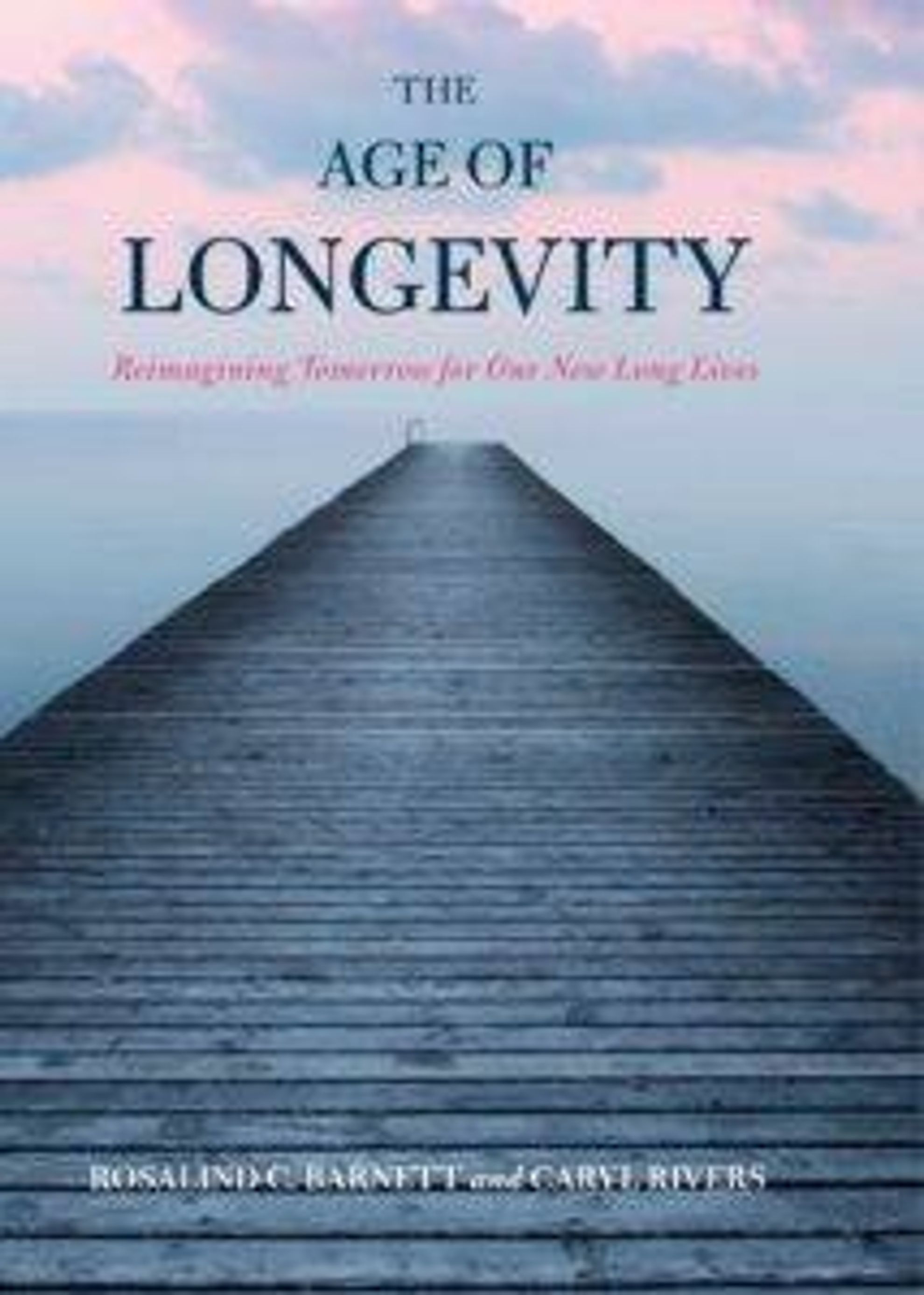Time for New Thinking for the Age of Longevity
The bleak narrative about aging is bogus, this author says
Rosalind Barnett, co-author of the new book The Age of Longevity, has a bone to pick — with pretty much all of us.
She writes that “the bleak mainstream narrative about aging, centering on decay, decline, burden and costs, is becoming increasingly less true” but “it has not yet been replaced by a story that reflects present reality.”
Barnett is hoping her new book (and articles like this one) will help correct the record about people in what she calls “late adulthood” — age 55 to 80. I hope so, too. I recently interviewed her about, as the book’s subtitle says, “reimagining tomorrow for our new long lives.”
Since Barnett — a senior scientist at the Women’s Studies Research Center at Brandeis University — is a leading researcher on workplace issues and family life, we talked a lot about the implications of today’s longer lives for employers and for workers in their 50s and 60s.

Highlights of our conversation:
Next Avenue: How do you think we should be reimagining tomorrow for our new long lives?
Rosalind Barnett: The idea that you live a productive life and at 65 you stop and retire — that’s built into the DNA of our culture. But it’s not accurate anymore and that hasn’t really sunk in.
Many people hear the phrase: ‘Are you still working?’ That puts older people on the defensive about why they’re working. But late adulthood is a very productive period of time.
In fact, you say that more and more of the big scientific discoveries will be made by people who’ve been around for awhile, not young geniuses. Why?
One reason is that these days it takes a lot longer to get up to speed. Years ago, if you were going into a field, you’d have to master what had gone before you, but there was less to master than there is now.
Plenty of people are making incredible scientific breakthroughs into their 50s, 60s, 70s, 80s and 90s. If you have a contribution to make, age should be no barrier and it isn’t for a lot of people.
Why is the ‘bleak mainstream narrative about aging’ becoming less true?
The fact is, the age groups with the greatest uptick in employment have been those 55 and older, even 65 and older. Older people are now job creators, even though the decline and decay narrative is still the predominant narrative.
You believe that issues raised by harmful and erroneous stereotypes about aging will demand attention. What kinds of stereotypes do you have in mind?
One is the phony war — the idea that older workers are blocking the path up for younger workers and that there’s intergenerational warfare going on. In fact, due to the declining birth rate, fewer young people are coming behind to take those jobs.
It harkens back to the 1970s, when more women were starting to work and some men feared they’d lose their jobs because of that. It didn’t happen. Female employment went up and so did male employment.
But there are also campaigns to encourage older workers to retire. Why is that not in anyone’s best long-term interest?
I have a real issue with that. What will older workers do if they can’t find jobs and drain our society for the long run? Who saves money that way? Many older workers are quite able to be productive; some are not.
You say it’s a myth that older workers are less productive and less engaged than younger workers, right?
Right. It’s not factually true. Studies have shown the highest level of engagement is with older workers.
Older workers also have strategies to handle problems that come out of experience, so they’re less thrown by a crisis or a snag than younger people who haven’t had the experience to draw on.

But you also say there’s a paradox: While workers 55 and older have the lowest unemployment rate of any age group, once they lose a job they’re in trouble.
That’s the ageism issue: It’s very difficult, but not impossible, to find a job at that age. Our picture of older workers is a greeter at Walmart standing in a cashier’s line. There’s nothing wrong with that job, but this picture limits what we think we should apply for when we get older, and it’s in the heads of employers as well.
And you say there are some psychological issues older workers need to deal with. What is one of them and how should they deal with it?
One is a lack of confidence. That’s very destructive. You need to start talking more positively about yourself.
How should business leaders understand and plan for this new world?
It’s a huge question. We now have a four-generation workforce. Stop and think what that means. Many older workers now report to younger bosses. That turns things upside down.
Some employers are trying reverse mentoring, where young people mentor older people. This helps to cut through ageism.
Also, some employers are experimenting with different models to make it easier for older workers to stay on job. It might be flexible work arrangements, modifying the 9-to-5 schedule.
But employers and employees need to have a discussion about this. It’s not OK for an employer to just check off a box and say: ‘We have a flexible schedule.’ If you have that, but it’s not what the workers want, it’s not suitable.
One more thing, and it’s a very important point to make. There’s a myth that older people are not tech savvy. Even if it happens to be true in some cases, rather than an employer concluding they can’t learn — they can! The fact that you don’t know something doesn’t mean you can’t learn it.
And how should policymakers understand and plan for this new world?
One thing on the radar this election is Social Security benefits.
Many people 65 and older are supporting their grandchildren now. Why? Their adult children were hurt by the Great Recession; they lost their homes or their jobs and the education costs for their kids are out of sight. So grandparents are increasingly being called upon.
As far as Social Security is concerned, they need more supports, not fewer. There’s talk about cutting benefits; one idea might be to increase Social Security benefits.
You say this stage of life can have some of the excitement of adolescence without the uncertainty and doubt. What do you mean?
I think adolescence is fraught with anxiety. When you’re older, you have a lot of life experience and you’re not afraid of failing as much. You know you’ve failed before and you got up.
So there’s less anxiety about what if you make a wrong decision. That’s a benefit that makes it exciting.


